A buddy of mine recently got his real estate license and started pushing the “American Dream” harder than a street vendor in Times Square. He posted this slick social media message about the “Top 5 Benefits of Homeownership” that had me shaking my head. Look, I’ve been writing about the homeownership myth for years, and y’all know where I stand on this. But since my man decided to get all evangelical about buying houses, I figured it’s time to break down his arguments with some cold, hard facts from 2025.
Let me tell you something – after diving deep into the latest data, the picture is even worse for homebuyers than I thought. We’re talking about mortgage interest rates that’ll make you weep, property taxes that can literally steal your house, and hidden costs that’ll drain your bank account faster than a MetroCard in rush hour. But don’t just take my word for it – let me walk you through each of his claims and show you exactly why he’s selling you a dream that might turn into your worst financial nightmare.
The “Build Equity” Fantasy: When Property Taxes Make You a Permanent Renter
My friend’s first claim is that “every payment brings you closer to full ownership.” Man, if I had a dollar for every time I heard this nonsense, I could probably buy one of those overpriced houses myself.
Here’s the reality check nobody wants to give you: you never truly own your home, even after you pay off that mortgage. Don’t believe me? Try not paying your property taxes and see how long you get to keep “your” house. Rocket Mortgage In Cook County, Illinois alone, over 1,000 owner-occupied homes have been lost to tax foreclosure since 2019, with more than half lost for initial tax debts of $1,600 or less. Some folks lost their homes over debts under $200. Injustice Watch Think about that – a lifetime of mortgage payments wiped out over a couple hundred bucks in taxes.
And let’s talk about this “building equity” math that sounds so good in theory. With current mortgage rates at 6.76% (as of May 2025), stlouisfed if you borrow $800,000 for that dream house, you’ll pay approximately $1,091,440 in interest alone over the 30-year term. GOBankingRates That’s 236% of what you borrowed – more than double your loan amount just in interest payments.
Growing up in Harlem, my pops always told me “if it sounds too good to be true, it probably is.” Well, this equity-building promise is exactly that kind of too-good-to-be-true situation that’ll have you paying the bank more than twice what you borrowed.
But here’s where it gets really wild – for the first 18.5 years of your mortgage, you’re paying more in interest than principal every single month. In year one, about 85% of your payment goes to interest and only 15% actually “builds equity.” Calculator.net Meanwhile, if you took that down payment money and the difference between renting and buying (which is about $768 per month nationally), Bankrate and invested it in the stock market, you’d likely come out way ahead. WIN Home Inspection
Historical Returns Comparison:
- S&P 500 average annual return: 10.39% (including dividends) BiggerPockets SlickCharts
- Real estate price appreciation: 3.4% annually since 1891 Creative PlanningCalculator.net
- Real estate inflation-adjusted: Only 0.5% annually Creative Planning Calculator.net
The numbers don’t lie, folks. While you’re “building equity” at a snail’s pace and paying massive interest, you could be building real wealth in diversified investments that actually put money in your pocket instead of taking it out. Sarwa Longtermtrends
Sources: Federal Reserve Economic Data, Illinois Property Tax Foreclosure Study
The “Stable Payments” Illusion: Hidden Costs That’ll Break Your Budget
Now let’s talk about this “stable payments” myth. Sure, your mortgage payment might stay the same, but that’s like saying your MetroCard price is stable while they keep adding fees, delays, and service cuts.
The research shows that homeowners face $21,400 in annual costs beyond their mortgage payments. Bankrate Real Estate Witch Let me break this down for you: Bankrate
| Hidden Homeownership Costs | Annual Amount |
|---|---|
| Home maintenance | $8,808 |
| Utilities/energy | $4,494 |
| Property taxes | $4,316 |
| Home insurance | $2,267 |
| Internet/cable | $1,515 |
| Total Annual Hidden Costs | $21,400 |
And these costs are anything but stable. Property taxes have increased 27% nationwide from 2019-2024. CoreLogic® bankrate In some Florida markets, they’ve surged nearly 60% in five years. Kiplinger Homeowners insurance? It’s up 24-34% in recent years, with some insurers hiking rates 34% in 2024 alone. NerdWallet Brookings NPR The Conversation
I remember when my cousin bought his place back in ‘2000. Dude thought he was set with his fixed mortgage payment. Fast forward 25 years, and between the property tax increases and insurance hikes, his total monthly housing cost has nearly doubled. Meanwhile, his rent-stabilized neighbor? His increases are capped at 3% annually.
Compare this chaos to rental stability. Most rent-controlled markets cap annual increases at 5-10%, Kangapropertymanagement with many areas like Los Angeles limiting increases to just 3% maximum. When I’m renting, my housing expense is predictable – it’s just my rent. When the water heater breaks, the roof leaks, or the HVAC system dies, that’s the landlord’s problem, not mine. Butch on a Budget
For those buying with less than 20% down, add $115-375 monthly for Private Mortgage Insurance (PMI). Freddie Mac LendingTree Rocket Mortgage Nerd Wallet Nerd Wallet Nerd Wallet So much for “stable payments” when you’re getting hit with surprise costs from every direction.
Sources: Bankrate Hidden Costs Study, CoreLogic Property Tax Analysis
Tax Benefits: The Deduction That Most People Can’t Even Use
This is where my real estate friend really shows his ignorance. He’s out here talking about mortgage interest and property tax deductions like everyone’s getting this huge tax windfall.
Reality check: only 10-11% of taxpayers even bother itemizing deductions anymore. SmartAsset The Zebra Bankrate Why? Because the standard deduction was substantially increased and now sits at $15,750 for single filers and $31,500 for married couples in 2025. NerdWallet
For most people, you’d need to have more than $15,750 (single) or $31,500 (married) in total itemized deductions before the mortgage interest deduction even matters. Internal Revenue Service Fidelity Here’s what that looks like in real numbers:
Break-even scenario for a single homeowner:
- Mortgage interest: ~$8,000+ annually
- Property taxes: ~$5,000+ annually
- State income taxes: ~$3,000+ annually
- Total needed: ~$16,000+ just to beat the standard deduction
And even if you do itemize, the actual savings depend on your tax bracket. If you’re in the 22% bracket and save $5,000 in deductions, you’re only saving $1,100 in actual taxes – not exactly the windfall they make it sound like.
Plus, if you’re itemizing, you’re likely paying extra for tax preparation – anywhere from $300-800+ for complex returns versus $150-300 for a simple return with the standard deduction.
The tax benefits are real for some people – mainly high earners in expensive markets with big mortgages. But for the average person? You’re probably not getting the tax breaks you think you are. WIN Home Inspection Bipartisan Policy Center
Sources: IRS Publication 936, Tax Foundation 2025 Tax Brackets
Freedom to Customize: Welcome to Permit Hell
This one really gets me heated because it sounds so appealing on the surface. “Paint it, upgrade it, make it yours!” Right. Let me tell you about the reality of homeowner “freedom.”
Want to remodel your kitchen? That’ll be $500-$1,500 in permits, plus a 14-16 week wait for approval. CRD Design Build Bathroom renovation? Another $200-$800 in permit fees. And God help you if you try to do any work without permits.
The penalties for unpermitted work are no joke:
- $500+ per day in fines Angi (up to $1,000 per day in Massachusetts) PermitFlow
- Triple permit fees in Texas PermitFlow
- Stop-work orders that shut down your entire project CCS Inc
- Insurance claims denied if there’s damage related to unpermitted work LegalClarity
My homeboy in Queens thought he was slick doing some electrical work without a permit. Saved himself maybe $200 on the permit fee. Six months later, there’s a small fire from faulty wiring. Insurance company took one look at the unpermitted electrical work and denied his entire claim. Dude ended up paying $15,000 out of pocket for damage that would’ve been covered if he’d just gotten the damn permit.
And here’s the kicker – up to 50% of U.S. homes have some form of unpermitted work. Econosurance HomeGuide When you go to sell, that unpermitted work becomes a nightmare. Buyers walk away, banks won’t approve mortgages, and you’re stuck either selling at a huge discount or spending thousands to retroactively permit work that might not even meet current codes. Nolo
Meanwhile, as a renter, I can paint my walls, hang pictures, and make reasonable modifications with just a simple conversation with my landlord. No permits, no inspections, no fines, no insurance complications. True freedom is not having to navigate a bureaucratic maze just to improve where you live.
Major City Permit Processing Times:
- Boston: 7.5 months median Cloudpermit
- New York City: 30 months Cloudpermit
- San Francisco: Up to 33 months Cloudpermit
- Denver: 180+ days (after recent reforms) KSK Construction Group
Sources: HomeGuide Building Permit Calculator, Strong Towns Permitting Analysis
Long-Term Wealth: The Single Biggest Lie About Real Estate
This last point is where my friend’s argument completely falls apart. The idea that “property values rise, and so does your net worth” sounds great until you do the actual math.
First off, your primary residence is a liability, not an asset. It costs you money every month – mortgage interest, taxes, insurance, maintenance. A real asset puts money in your pocket. Your house? It’s a money pit with a pretty facade.
But let’s talk about this wealth-building claim with some hard numbers. Here’s what happens when you compare buying versus renting and investing:
The Homeownership Path (30 years):
- $500,000 home appreciating at 4% annually = ~$1.6 million
- Total interest paid on mortgage = ~$650,000
- Maintenance, taxes, insurance over 30 years = ~$640,000+ HomeGuide Rocket Homes
- Net wealth after costs: ~$700,000
The Rent + Invest Path (30 years):
- Monthly savings by renting vs buying = $768 WIN Home Inspection
- 30-year investment at 7% return = ~$950,000
- Plus maintained liquidity and diversification
And that’s assuming your house actually appreciates. Ask anyone who bought in Detroit, Las Vegas, or Phoenix before 2008 how that worked out. Calculator.net During the 2008 crisis, Nevada, Florida, Arizona, and California saw price declines over 50%. Some markets didn’t recover to pre-2008 levels until 2015 or later. Norada Real Estate Wikipedia
The real kicker? When you finally want to access your home “wealth,” you’ve got to pay 6-7% of the home’s value in transaction costs just to sell. Real Estate Witch Compare that to stocks, where I can liquidate my entire portfolio in minutes with transaction costs under 0.1%. A Wealth of Common Sense
Liquidity Comparison:
- Home sale: 2-6 months minimum, 6-7% transaction costs
- Stock sale: Seconds to minutes, under 0.1% transaction costs
Plus, when you own a home, all your wealth is tied up in one asset, in one location, in one market. That’s the opposite of smart investing. Diversification is the only free lunch in investing, and homeownership forces you to put all your eggs in one very expensive, very illiquid basket. BiggerPockets
Sources: Federal Reserve Housing Data, Bankrate Rent vs Buy Analysis
The Bottom Line: Your House Is Not Your Piggy Bank
Look, I’m not saying homeownership is evil or that nobody should ever buy a house. But this idea that it’s automatically the path to wealth? That’s real estate agent marketing, not financial reality.
The 2025 data makes it crystal clear: renting costs 38% less than buying nationally, property taxes and insurance costs are spiraling out of control, most people can’t even use the tax benefits, the “freedom” comes with massive regulatory burdens, and when you factor in all the costs and risks, renting and investing often builds more wealth with less risk.
My grandmother always said “don’t let nobody sell you the Brooklyn Bridge.” Well, that’s exactly what’s happening when someone tries to convince you that paying twice your loan amount in interest, dealing with permits for every little change, and tying up all your wealth in one illiquid asset is somehow the path to financial freedom.
The American Dream isn’t about owning a house – it’s about building real wealth and having the freedom to live life on your terms. For most people in 2025, that means renting, investing the difference, and sleeping well at night knowing your money is working for you instead of against you.
Current Reality Check (2025 Data):
| Category | Homeownership | Renting + Investing |
|---|---|---|
| Monthly cost | $2,768 average | $2,000 average |
| Hidden annual costs | $21,400 | $0 (landlord’s responsibility) |
| Transaction costs to exit | 6-7% of value | Under 0.1% |
| Time to liquidate | 2-6 months | Minutes |
| Diversification | Single asset/location | Thousands of stocks/global |
| Tax complexity | Itemizing required for benefits | Standard deduction simplicity |
| Regulatory burden | Permits, inspections, fines | Landlord’s responsibility |
The choice is yours, but now you’ve got the real numbers to make an informed decision. Don’t let slick marketing and social pressure push you into the biggest financial mistake of your life.
For more detailed analysis and sources, check out the Urban Institute Housing Research, Federal Reserve Economic Data, and Bankrate’s comprehensive housing studies.
Check out my past articles on Real Estate:
- Are HELOCs Really “Good Investments”? Let’s Talk Real
- The Hidden Pitfalls of Homeownership: Why Homeowners Are Struggling to Afford Monthly Expenses
- The Surprising Truth: Why Renting Trumps Buying in the Long Run
- The Power and Pitfalls of Real Estate: Unveiling the Enigma of Quitclaim Deeds
- The Illusion of Real Estate Ownership: Why You’ll Never Truly Own Property
- The Power of Real Estate: Unlocking Cashflow Investment Opportunities







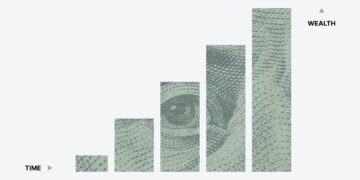
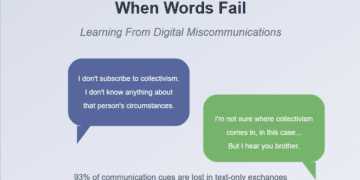




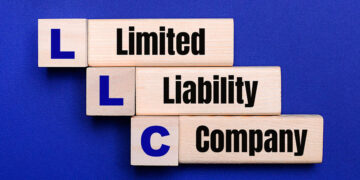





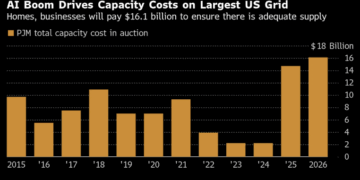
















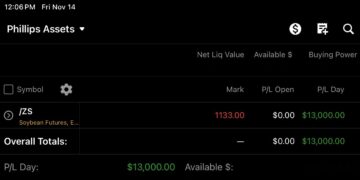










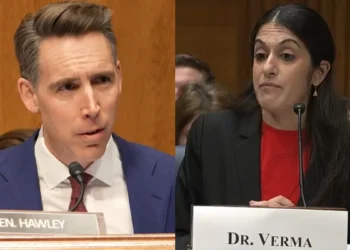
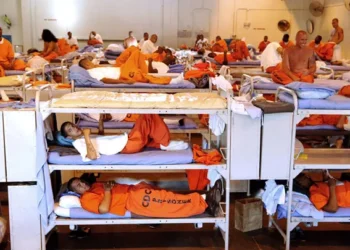
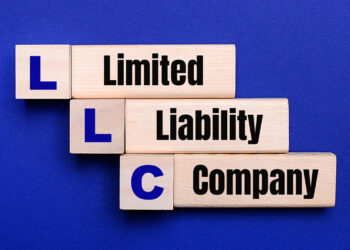

This is a powerful reality check. 👏 Most people chase “homeownership” thinking it’s the only path to wealth — but you nailed how hidden costs destroy that myth. Real financial freedom comes from diversification, not debt. At BOLD Precious Metals, we see many smart investors balancing their portfolios with assets like gold and silver instead of tying everything to one property. Great insights!